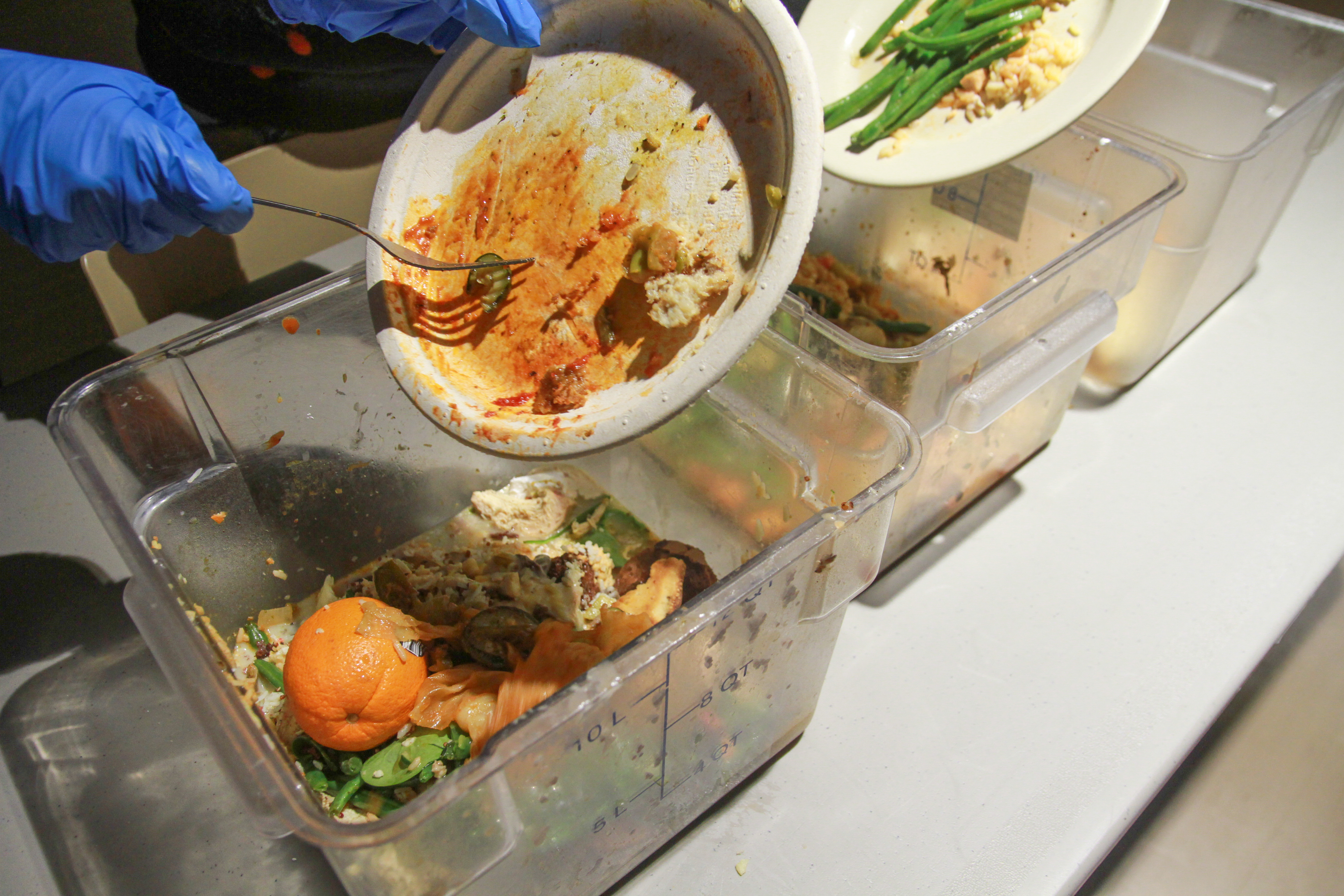Have you ever heard the expression your eyes are bigger than your stomach? It’s hard not to pick up multiple plates of food in the dining halls when there are so many delicious meals to choose from. Even if you eat most of what is on your plate you can still find yourself with leftover food. Whether it be the jalapeños you found too spicy in your taco bowl or some quinoa you just didn’t have room for, all of this adds up and equates to food waste.
This past April, Dining Team Green conducted our annual zero waste dinner to find out just how much post consumer food waste was produced in one meal. Although we set up shop in Douglass dining hall we collected waste from Danforth as well. Our first zero waste dinner wasn’t advertised in the hopes it would allow us to collect data from a typical meal. On April 5th, from 5PM to 8:30PM we collected 203.5 pounds of post consumer food waste from 636 customers. This is .32 pounds of waste per person! Last year we were able to lower our waste by 56% from the first to the second dinner. However, this year on April 26th from 5PM to 8:30PM we collected 212 pounds of post consumer food waste from 624 customers for .34 pounds of waste per person.
Although the zero waste dinner did not create a dramatic decrease in food waste as we have in previous years, Dining Team Green is taking the data and information we collected to figure out ways to reduce food waste in the future. In the meantime here are some tips to reduce your amount of post consumer food waste!
- Take one plate at a time. – It can be hard not to take a bit of everything in the dining hall but by limiting yourself to one plate at a time, you only take what you need which can help reduce your amount of food waste.
- Don’t be afraid to customize your plate. – Let’s face it, we don’t always like every food we are given. Whether you hate carrots or you’ve just had too much rice our dining halls are there to accommodate your needs. Don’t be afraid to ask for smaller portions or for something to be left off of your plate.
- Approach food waste from an issue that you care about. – Whether it’s the environment, social justice, or economic reasons finding these motivations can help encourage you to reduce your amount of food waste.
With a more conscious attitude, our student population could work together to reduce food waste by simply making more careful decisions when choosing our daily meals. Do you have an idea on how Dining Team Green can reduce food waste? Let us know at urdiningteamgreen@gmail.com.
Go green with Dining Team Green! Want more information on sustainability in dining? Follow us on Facebook, Instagram, and Twitter @ursustainable. We’d love to hear from you!
Photo by Elissa Moy, Class of 2021, Dining Team Green Marketing Intern
Guest Post Written by Phoebe Konecky, Class of 2021, Dining Team Green Sustainability Intern

